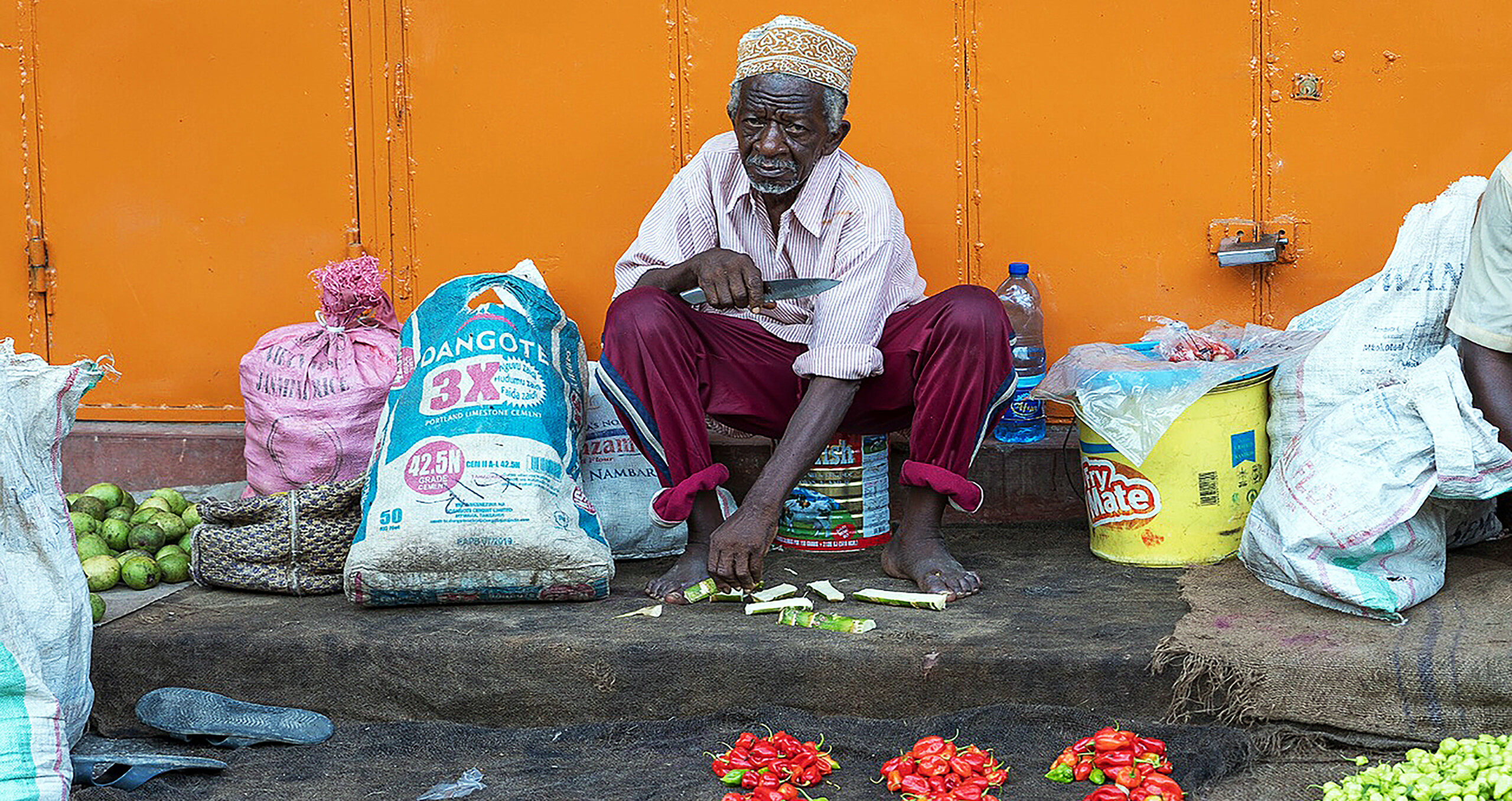Impacts of food insecurity in East Africa

Old man sells vegetables at a local street food market on the island of Zanzibar, Tanzania, east Africa. Photo by OlegD. (Shutterstock, 2019).
Impact of food insecurity in East Africa
Many humanitarian issues have arisen in the Great Lakes and Horn region of Africa, and these have worsened during the CODVID-19 pandemic. UNHCR (2021) announced that “the UNHCR, the UN Refugee Agency, and the World Food Programme (WFP) appealed today for US$266 million to end food ration cuts for over 3 million refugees in Eastern Africa. Funding shortages have forced cuts up to 60 percent.” According to the UNHCR as of 2021, there are around 4,719,699 refugees within the Great Lakes and Horn regions. The region hosts some 67% of the refugees on the African continent and 20% of the global refugee population (UNCHR, 2021). Rwanda has faced the highest budget cuts with around 60% of its funds being cut. The budget cuts will greatly affect the food security within the refugee camps around the Great Lakes and Horn region.
The region is already suffering from insufficient funding, while also dealing with refugees, food shortages, and environmental problems such as droughts. Food security is the main component of human rights because it ensures nutrition, which is a necessity for human survival. As noted in the Universal Human Rights Declaration under article 25, the right to access adequate amounts of food is a human right that should be guaranteed (UN, 2021). Food security is also the main component of state development. “Food security relies upon four pillars being: availability, utilization, access, and stability” (Funds for NGOs, 2019). As mentioned by Funds for NGOs “Food Security has three basic aims: ensuring the production of adequate food supplies, maximizing stability in the flow of supplies, and ensuring access to available supplies on the part of those who need them” (Funds for NGOs, 2019). With the current budget cuts, we cannot reach these basic aims, which will inevitably have a massive impact on the region. Specifically, these budget cuts will affect women and children and their nutritional health.
Along with food insecurity, the Great horn regions have also been hit hard by the COVID-19 pandemic. This includes restricting movements to areas where healthcare and medical aid may not be readily available, as well as economic restraints on migrants and refugees. Another problem is that refugees and migrants are hesitating to visit health centers due to the fear of contracting COVID-19 (United Nations Coordinator Appeal, 2020). COVID-19 uncertainty paired with food insecurity could cause a mass humanitarian crisis, causing malnourished refugees to not seek medical care. It can also cause diseases such as COVID-19 or Malaria to spread more easily between refugees within the refugee centers. Already due to budget cuts and food insecurity in the region, refugees have started to pick up negative coping skills, such as skipping meals, taking out loans, selling belongings, and seeking labor (which could include child labor) outside of the camps. These jobs could be dangerous and unsafe and put refugees at risk. (UN News, 2021). Another worry is that the refugees might leave the camps in search of a better food situation, and possibly end up in worse and dangerous situations. Nevertheless, even inside camps when there is a lack of food supplies, there is a sharp rise in gender-based and sexual violence (Schlein, 2021).
The agencies concerned with the issue are now in a scramble to raise the money to make up for the budget cuts. They are relying upon the public and other NGOs to donate to help make up for the difference. However, finding US$266 million is no easy task.

Article by
Nikki Mulan Muggli

Categories
Africa, Categories, Countries, Food, Health, Human rights, News


